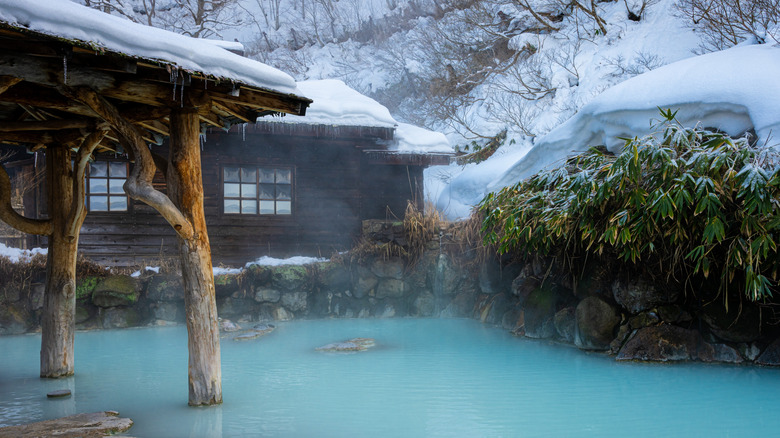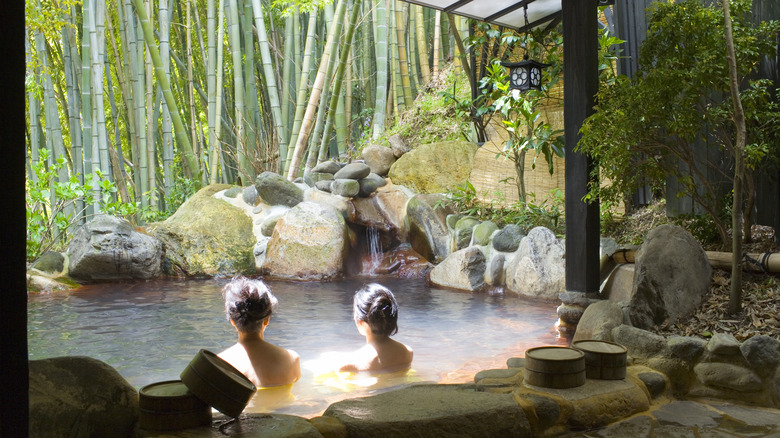The Important Etiquette Rule Tourists Must Follow When Bathing In A Japanese Hot Spring
Japan is truly a country like no other, making it one of the most fascinating places in the world to visit. At the same time, visitors may be intimidated by its labyrinth of customs and rules. For instance, the Japanese have rules dictating proper conduct at shrines, while other sets of rules apply to photography in public places.
Japanese hot springs (onsen) are yet another place where strict etiquette rules govern visitor behavior. But don't let this strictness deter you from experiencing the sublime magic of Japan's onsens. Given its dazzling array of geothermal landscapes, Japan is the ultimate hot springs destination, with 2,983 hot spring towns and 27,297 hot spring locations scattered across the country. A dip in an onsen is more than just a steamy bath. It's immersion in a revered Japanese tradition, one engrained in the culture for thousands of years.
The first and perhaps most important rule to understand is that onsen are where you relax, not where you clean yourself. In other words, don't take your vanilla sugar exfoliating body scrub, razor, and rubber ducky into the spring with you and start lathering up. Instead, stop at the designated shower area (every onsen should have one) and get as squeaky clean as possible before heading in. In addition to cleaning your body, you should shampoo your hair and wash your face in the shower area, taking care to remove any make-up. If you have long hair, tie it up before heading to the bathing area to ensure that stray hairs won't fall into the water.
Onsen etiquette, continued
Another important aspect of onsen etiquette: don't wear a swimsuit, as most require you to bathe nude. They also don't allow slippers or flip flops in the pool area, so leave those on shoe shelves at the entrance. Go barefoot in the onsen, taking care not to slip on any wet surfaces. Finally, don't bring a washcloth or towel with you into the water. Remember, the only things that go into the onsen waters are clean, unclothed bodies.
Next, tattooed travelers may be frustrated by this policy, but more conservative onsen do not allow tattooed individuals to enter. This bias has deep historical roots: the Japanese have associated tattoos with criminal activity for thousands of years, going all the way back to 720 AD when forehead tattoos were used to brand outlaws. If you have tattoos but your heart set on visiting an onsen, do research to ensure that your onsen of choice is tattoo-friendly (there are many throughout Japan). Need a suggestion for which onsens to visit? Check out our article on Beppu, one of Japan's largest and most famous hot spring resorts in a beautiful mountain city. Many of the onsen here welcome tattooed visitors.

